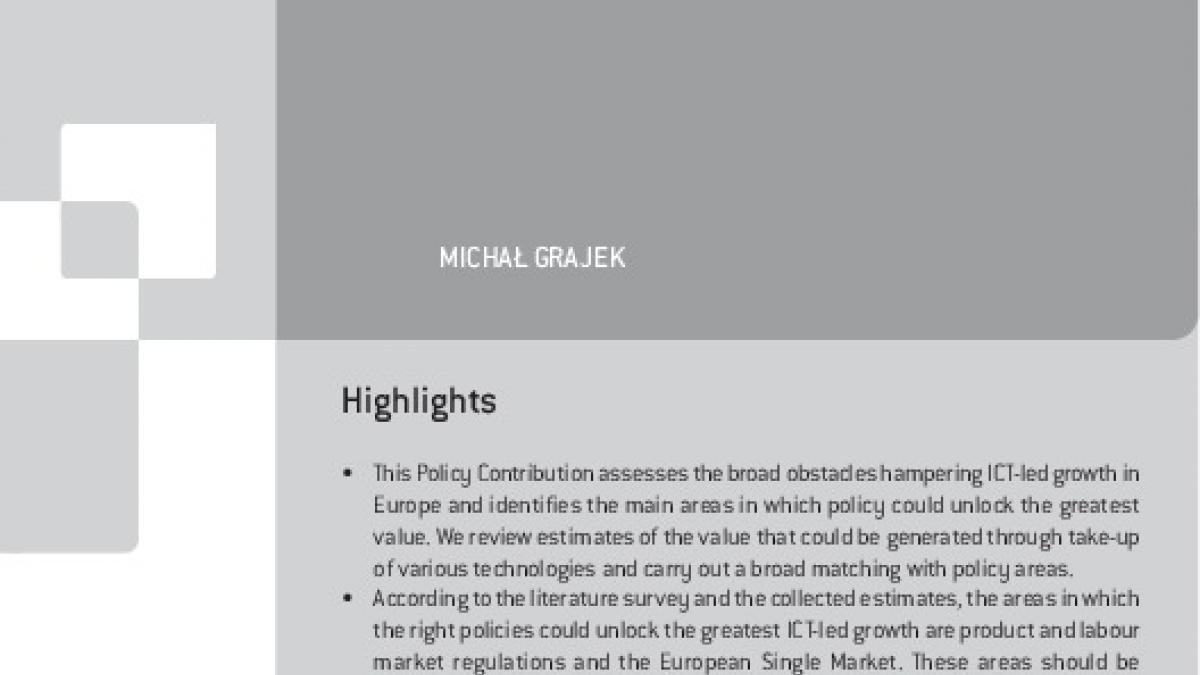Policy brief
ICT for growth: a targeted approach
This policy contribution assesses the broad obstacles hampering ICT-led growth in Europe and identifies the main areas in which policy could unlock

- This Policy Contribution assesses the broad obstacles hampering ICT-led growth in Europe and identifies the main areas in which policy could unlock the greatest value. We review estimates of the value that could be generated through take-up of various technologies and carry out a broad matching with policy areas.
- According to the literature survey and the collected estimates, the areas in which the right policies could unlock the greatest ICT-led growth are product and labour market regulations and the European Single Market. These areas should be reformed to make European markets more flexible and competitive. This would promote wider adoption of modern data-driven organisational and management practices thereby helping to close the productivity gap between the United States and the European Union.
- Gains could also be made in the areas of privacy, data security, intellectual property and liability pertaining to the digital economy, especially cloud computing, and next generation network infrastructure investment.
Standardisation and spectrum allocation issues are found to be important, though to a lesser degree. Strong complementarities between the analysed technologies suggest, however, that policymakers need to deal with all of the identified obstacles in order to fully realise the potential of ICT to spur long-term growth beyond the partial gains that we report.


